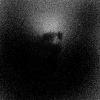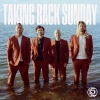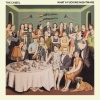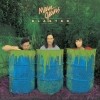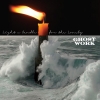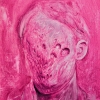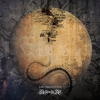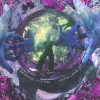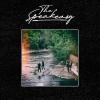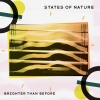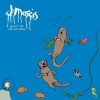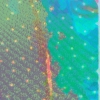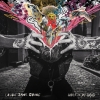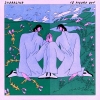Gig Reviews
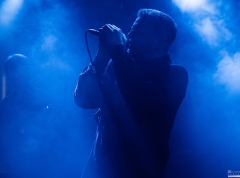
Hamferð
Pumpehuset, Copenhagen, DEN - 24/4
Album Reviews
Jeppe Nissen
Previous Nextauthor AP date 17/06/16
Copenhell is fast approaching, and as part of warming ourselves and our readers up for Denmark’s premier metal event, a few weeks ago we invited the festival’s chief booker Jeppe Nissen to the metal themed WarPigs brewpub in Copenhagen for a couple of rounds of craft beer and a handful of sharp questions about his first-ever sold out Copenhell. As ever, Mr. Nissen’s optimism, enthusiasm and huge insight into the rock and metal genres prompted a conversation much longer than the scope of an interview, and although by that time the strength of Mikkeller’s / Three Floyds’ golden drops meant that it was time to turn off the recorder, the more formal portion of our discussion has been transcribed for your reading pleasure. Read on to find out how the festival was able to sell out and how it plans to cope with the huge increase in the number of visitors — among plenty of other interesting points made by Mr. Nissen with regard to the profile and future of Copenhell.
RF.net: What would you say makes Copenhell so special?
Jeppe: I think we understand the scene — the so-called rock and metal scene — and we do a lot to keep it honest in every kind of way: in our communication, in our artwork, in our way that we build the festival site itself. Instead of doing a square site with one big stage and bars for beer, and then just using all of the money on music, we invest a lot of time and money on strange things as well. We build a Viking-land, huge wooden wolves that we burn, art exhibitions and things like that. All of those things put together makes it kind of special. If we put in a lot of effort into details, and if we really live this, then I think the audience will like it as well, you know? Because this audience… If they find a thing they like, they like it a lot. Whether it’s artwork, some genre of music, beer or food — if they get into something, they really dig it and have opinions about it. And I think it’s important that we have opinions as well and set up the right parameters to feed them.
RF.net: Yeah, that makes for a really good atmosphere as well. There’s never any problems at Copenhell, everyone is always in a good mood. It’s almost like it’s one big in-joke, this whole metal thing, for the people that attend the festival. Nobody takes it too seriously but they love it, right?
Jeppe: Exactly!
Especially at that of the night, stuff like that really works. I try to book a lot of different genres and styles, and some work better during the daytime — really technical death metal bands, for instance, work much better when you’re clear in the head and you can still count to seven. But at some point you can actually only count to four, and at that point a Twisted Sister, a classic rock band that has some huge songs is really good! I kind of figured it out at that point, and also when Pretty Maids jumped in for a cancellation last year — people loved it! You know, a couple of huge songs that they could relate to and just sing their hearts out for those 45 minutes to an hour and drink some beers? Acts like that have a legacy and songs that go hand-in-hand with beers and late nights.
And when we’re talking about going in that direction… Some of them are very old, and I need them at Copenhell before they stop. I unfortunately missed Motörhead. It was awful, rest in peace. But you know, Black Sabbath — their last show. We’ve got to have it. Scorpions — it’s their 50th Anniversary and they’re not going to last much longer. We need to have them!
RF.net: Would you be able to sell out the festival next year even without these kinds of names?
Jeppe: I doubt it, but I hope so. I think there is still an audience looking for some kind of huge headliners, a top-three name on their wish list. I’m not sure that I can do it yet, but hopefully in a couple of years, it’s doable. Not that I’m going to compare Copenhell to Wacken Open Air — it has an extreme reputation, and what a huge job they have done for metal worldwide — but that festival can put on a Doro or whatever, and still sell it out. The festival has existed for 25 years, and as we all know, it now sells out in 12 hours or less. But it does have a lot of years in the bag, and it has only been in the last couple of years that they have been strong enough that it goes this fast with selling out — faster and faster every year. 5 years ago, it wasn’t that fast. So what I’m saying is, I think I still need to deliver some big acts next year as well to sell Copenhell out, and hopefully that’s doable. And then hopefully in a couple of years, I can sell it out without those types of names.
RF.net: So there is going to be a conscious effort to bring in those classic acts next year as well?
Jeppe: Yeah, some of them. If I look at the program this year, I would say that I would have liked to see a younger act up in the top four. I’m not missing it, but yes, I would like to have seen that. It just wasn’t available at that point, and when I got into the booking, these acts fell in pretty well; you know, King Diamond, Black Sabbath, Scorpions, Alice Cooper and Megadeth. They were just there. The younger, bigger headliners were not available for me at that point, but I would have loved to see one or two at the top.
RF.net What would you consider to be the next bands to take over these headliner spots when these older bands stop, or worse?
Jeppe: It’s an interesting situation on this scene, because in the next five years there’s going to be a huge generation shift. The legends are probably going to stop playing, or they will die, as they unfortunately are beginning to do now. But I think that there is a range of acts — and I’ve had some of them: Slipknot is there, Ghost, Gojira and Mastodon… those last three are not in a headliner position yet, but they are getting there. Heavy metal acts tend to be like wine: it takes a lot of time before they become good, before they become really big. In contrast, if you look at the pop world, an act can go from 0 to 120 in a year and sell huge amounts of tickets in no time. That doesn’t really happen in hard rock or metal — it takes a lot of time.
But I also think that when these old dinosaurs (meant in the best possible way) die out, it will be akin to when a huge, old tree in the forest dies — it creates opportunity for the younger trees. That is to say, some slots at big festivals, more money to go around… there will be a lot of things playing into it so that these older acts don’t take all the money and the fame anymore. The next generation will do it.
RF.net: Could you see, for example, a band like Kvelertak headlining Copenhell in the next few years, given their meteoric success?
Jeppe: No, I don’t think so, with all due respect to the band. I think it’s an amazing band and an amazing live act, but I don’t think they will be there. I don’t think there would be enough of the crowd that has a relationship to their songs; the fact that most people cannot sing along to them could be one factor. So going in to headline the main stage? I don’t think so. It will take some more years for them to get there But a headliner on the second stage? Absolutely. If you take Amon Amarth, they’re playing the main stage now as well. Still an early slot, but they’re getting there a little bit faster. They’ve got the full show, the shebang… Their music is good to drink to, and the Viking sing-songs create lots of opportunities for the audience to get into it. Kvelertak are not quite there yet.
RF.net: The later it gets in the summer, the higher the chance of fantastic weather. But that also has a downside: heat is nice, but it can also be dangerous. For example, Hellfest 2014 was hit by temperatures between +30 and +35c and no clouds, and there is hardly any shade at the festival. They had almost nothing planned to deal with that. So do you have any contingency plans for that, however less likely it is in Copenhagen?
Jeppe: Well, we are doomed with heavy rain and cold weather, but we are obviously praying to the right gods. But yes, we are absolutely aware of this. Opposite to, say, Wacken, which has this super strange climate where it could be +0c, flooding, or +35c as well, and takes place on a flat field with no tents, no places where people can go in the shade; Copenhell is built up from a lot of tents only meant for sitting. You know, the Biergarten, Tutten Bodega, and some other things that we have built so that people can actually sit in the shade. But when we get closer, we will check the forecast, and if it gets really hot — which would be a miracle at Copenhell! — then we would have some solutions to that with regard to extra water and hosing people down at shows. Absolutely.
RF.net: Are you planning to keep these dates for the 2017 edition as well, or was it more a case of Black Sabbath was only available this weekend this year?
Jeppe: We’re planning to keep these dates in 2017 as well — the same weekend.
RF.net: Do you see the clash wit the Roskilde Festival gates opening on the same day as Copenhell ends as a problem?
Jeppe: Well, not really. I think it’s two different festivals. Roskilde Festival is an institution in festivals worldwide — almost the mother of all festivals, just an amazing event — and has another angle on everything that we do. Maybe there’ll be some clashes in audiences that want to go to both festivals, but it’s the opening day, so if they have some good friends, hopefully they can help set up the tents. So I hope it should be good if you want to do both things and have to work on your hangover.
But at this point, I don’t think it’s a huge clash. I think it is doable if you want to do both. And audience-wise… I also think there’s a lot of audience at Copenhell that does not attend Roskilde anymore. So I think the two festivals can live hand-in-hand and make a power-week.
RF.net: I can’t even imagine that thought anymore…
Jeppe: But you know, in the 90’s, there was Midtfyns Festival, which was huge — almost as big as Roskilde — and the two were back-to-back. And there was a lot of audience that went to both. I’ve never done it, and I certainly couldn’t do it now. Nowadays I can’t even think the thought! But I hope that everything works out and that Copenhell and Roskilde can live that close to one another without creating any problems.
So I think it’s going to be a combination. I like the big sing-along rock things as well — I think they’re good, I think they work. And I like the small, super extreme black things, and the young British and American artists that look and sound different, but have a great vibe. So I try in the 40 acts to have everything. It’s impossible, I know, I know, I know. But hopefully we can expand in the years to come with another stage and get some more acts to the festival.
RF.net: Do you have any plans to increase the capacity, both for the number of artists and the amount of tickets, now that the festival has managed to sell out?
Jeppe: What we spoke about in the beginning was, how would 17,000 people look? It’s super difficult for me to say, because rather than going nuts because of one sold out festival, we are at the point where I would rather play it safe and steady and slow as we have done from year one, and just keep building it slowly so that everyone can follow the pace of it, and be a part of the development of the festival. But I would love a stage more in the future, absolutely. And especially I would love a tent stage. The day shows are more intimate in a tent at 2 o’clock than outside in the sun. It’s hard to make things intimate outside during the day. So for Christmas I want a tent stage!
RF.net: This relates to the question before the last one. In previous years, we’ve been starting to see more and more non-metal bands added to the line-up, like Bad Religion, Rise Against and A Day To Remember just to name a couple. But none of those bands had particularly big audiences. Do poor attendances like that influence your booking decisions for the next year?
Jeppe: Not really, no. I want to present an act like Bad Religion at Copenhell. A Day to Remember has something. I think it’s a good band, and it’ll develop in the future as well. I want to present it at Copenhell. So I don’t see an act that has a smaller attendance than another act as a failure. If an act has some kind of relevance or history or future, I’ll book it.
RF.net: Do you have plans to expand even further outside of harder rock and metal in the future?
Jeppe: You know, I think I’m pretty out there already. Scorpions is a stadium rock act, as rock as it gets but also as soft as it gets. But it’s huge, and they have some songs, and some relevance in the scene that we work with and love, so that’s great. And on the extreme side, I think I’m pretty much there, I don’t know? With punk… maybe I’m not super punk, as Bad Religion is probably the most punk I’ve been. But could be, absolutely.
RF.net: Would you consider going into a genre like, let’s say pop-punk or emo?
Jeppe: Yes — if the act is there and the time is right for it. There is a time for everything, and everything comes back. Let’s say Blink-182. There’s a lot of people who would love to see it, and there’s a lot of people who would hate it. But they have some songs, and although it was 10 or 15 years ago that they were big, it’s a circle — it comes around. And there’s something with nostalgia acts that’s great. So I don’t see it as impossible if the act is right and the time is right to put it on.
We have also expanded the festival site. We haven’t made huge changes, so people can’t relate to it anymore. It’s the same, but new. As we spoke about earlier, we are changing things slowly and steadily. All of the stages have been pulled back, so there’s a lot more space. The Biergarten tent has been moved and is twice as big as last year, while the Tutten Bodega tent is now the old Biergarten tent, doubling its capacity. Three times as many toilets, even though there’s only double the amount of people. Much more beer, many more bars, many more food stands, the works. So we’ve really tried to up everything.
And then, we’re sold out a month before the festival. That gives hope for the future; it’s still not only EDM or Distortion Festival. It show something, I think. We discussed this earlier, that when Copenhell started, there were no rock or metal bars in Copenhagen really — and now there are four or five. There are a lot of good rock and metal blogs now… Things are good, you know? The scene is healthy. So I’m also looking forward to welcoming a lot of new people at Copenhell. There will be some that have never been there before, and I’m sure they’re going to get a great experience. I haven’t met any persons that have been there — even if they don’t like rock — that have come home and said, ”What a shithole.” or ”What a bad party.” It seems like everybody really likes to be at the festival.
I’m looking forward to seeing how Gutterdämmerung, the silent movie, is going to work. I look forward to my first-ever tribute band — which might be the last time they play in Denmark as well — to give a hats-off to Lemmy: Bömbers with Abbath. It’s going to be fucking fun. And then, Alice Cooper, Scorpions, Abbath, Dark Funeral… there’s a lot of good stuff. And some of the younger bands: Beartooth is a really interesting act, and Norma Jean, Converge… those kind of acts can throw a party.
RF.net: Speaking of those two bands, that seemed to be the only problem with the running order that people have, that Norma Jean and August Burns Red are playing at the same time. Is that because of their tour schedule?
Jeppe: Yeah, that wasn’t good. It’s because of the schedule though, and where on the day there was space on the schedule to slot them in. Unfortunately they ended up pretty much on top of each other. But you know, sometimes that’s how it goes when you try to piece together the puzzle.
RF.net: What should he/she see other than bands?
Jeppe: They should see the exhibitions. Peter Beste’s battle vest exhibition is absolutely amazing. They should go to Smadreland and break shit. Go to the top of the hill, stand at the absolute top, and then look over the site, and look over Copenhagen. It’s a fucking beautiful site. And the wolf, they won’t miss the wolf.
RF.net: What should he/she eat?
Jeppe: Meat. There’ll be plenty of it. But if they’re vegetarian, there’ll room for them as well.
RF.net: Where and what should he/she drink?
Jeppe: Of course they should drink beer. Beer and metal is a match made in heaven. But they should also go to the cocktail bars, and we’re also getting Snaps this year. Aalborg Akvavit will have a bar in the church, so you can actually go to the church and have a shot of Snaps. It kind of makes sense. And then drink some water, if it gets hot.
RF.net: Are you going to have a signature Copenhell drink this year?
Jeppe: We did the Absindssyg last year, and without revealing too much, we’re doing an extended version of that this year. It has been lying in some wooden caskets for a year now, and it’s gone white. So be prepared. But there are almost no bottles of it.
 Twitter
Twitter Facebook
Facebook